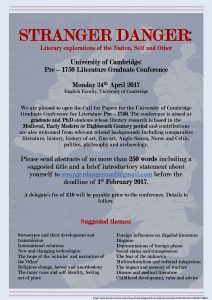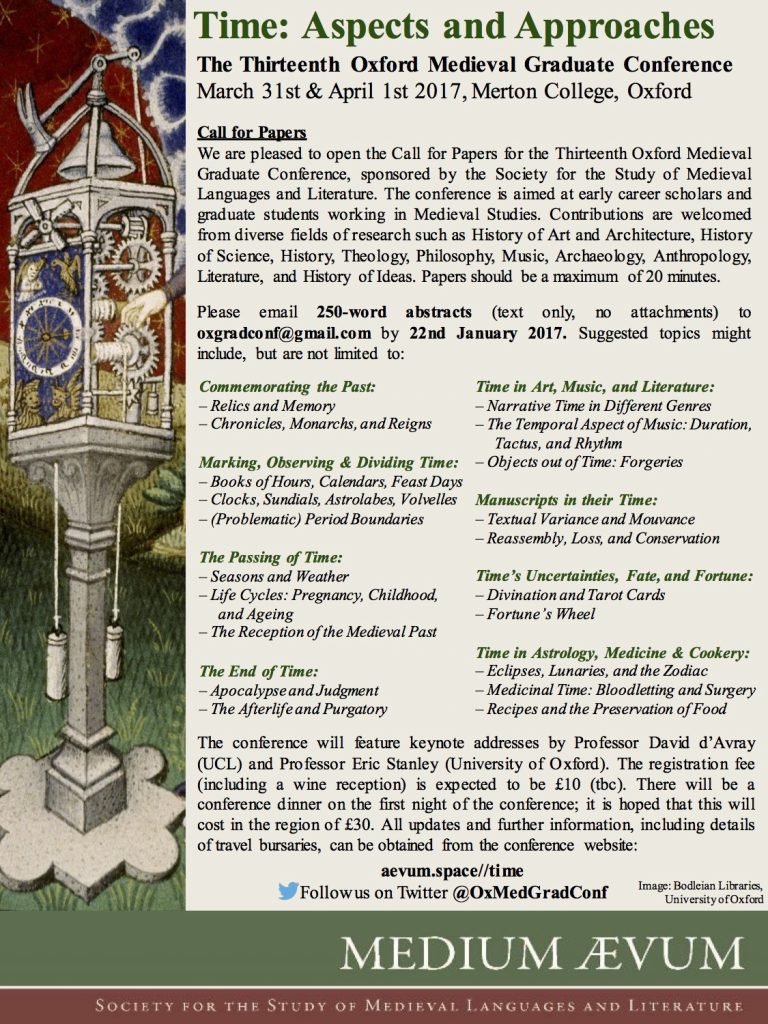CALL FOR PAPERS and IMAGES OF RESEARCH
The EMREM Postgraduate Forum
Annual Symposium and
Images of Research Exhibition
Thursday 18th and Friday 19th May 2017
Papers and images of research are invited for the 2017 EMREM two-day interdisciplinary symposium, to be held at the University of Birmingham. The theme for this year’s event is ‘Powerful Objects’.
Postgraduates from all fields of EMREM (History, Archaeology, Literature, Linguistics, Music, Art History) are welcome to share their research by giving papers and/or entering the exhibition, while also building networks at this friendly and well-established symposium. You may submit both a paper and an image.
Possible topics for papers and images might include, but are not limited to:
Materiality and Embodiment The Sacred and the Numinous
Text as Object Relics and Reliquaries
Life Courses and Biographies Digital Humanities
Object-Oriented Ontologies Royal Regalia
Human and Non-Human Objects Mechanical and Musical Instruments
Painting and Sculpture Weaponry and Armour
Tombs and Monuments Coins and Coinage
Papers should be 20 minutes in length. Please send proposals of approximately 300 words, OR 1000 words if applying as a panel, to emremforum@googlemail.com by 1st March 2017.
For the exhibition send a high resolution image along with a 200 word summary of what it shows and how it links to your research (if accepted, we will organise the printing). These will be exhibited during the conference, and prizes awarded.
emremforum.wordpress.com facebook.com/emremforum @EMREM_Forum

